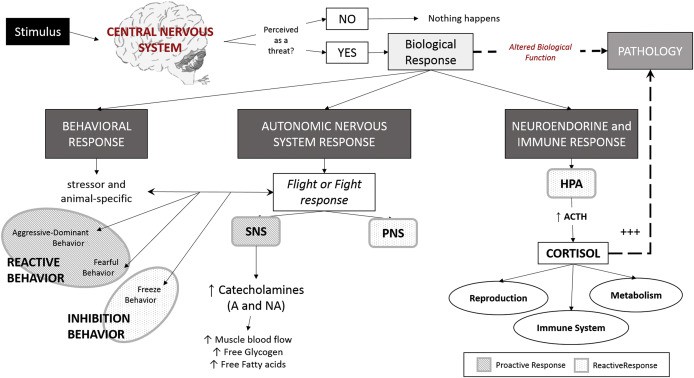
Effects of stress on the performance of sport horses
Horses are extraordinary athletes who have been adapted to a large variety of uses depending on their built and aptitude - from agricultural and military, to sport and transportation. A problem that often occurs is pushing these animals to limits that would not be normally pursued in the wild. This can cause stress and reduce one`s performance. Stress could have either positive or negative effect on the horse`s body and therefore either enhance or limit performance. One of the big problems that stress can lead to, is lowering an animal`s economic value, which nowadays is important for everyone in the equine industry.
Stress has many definitions, one of which is the variety of responses by an animal to its environment. As horses have evolved to cope with normal short-term stressors, stress does not always result in a negative influence. In this review, situations where stress has a negative outcome are referred to as “distress” and where there is a positive/neutral response it is referred to as “physiological stress”.
Especially when talking about sport horses, stress response can have either positive or negative consequences on performance. During normal exercise, heart rate and plasma cortisol concentrations are increased. Cortisol can have many beneficial physiological functions but if high levels are maintained for prolonged periods, it can cause deleterious effects.
There are two approaches in which stress can affect a good performance - extrinsic and intrinsic, and they are both discussed in this review, as well as each of the five main components of a good performer - conformation, gait and movement; temperament and behaviour; genetics; health and reproductive ability; physiology.
Stress can affect performance in several ways, however, there are methods of improvement. If animal selecting improves and genetic selection is made by sport performance, animals will have the chance to adapt better to the conditions of their discipline. Selection of the discipline according to the horses` best physical and physiological predisposition is also key. Less stressful techniques of training can be used giving the animals the chance to gradually get used to different stressors, especially the ones that are unavoidable in future competitions. It is also of high importance for breeders, riders and owners to better recognise stress in their horses.
> From: Bartolome et al., JEVS 40 (2016) 84-93. All rights reserved to 2016 Elsevier Inc. Elsevier Inc.. Click here for the online summary.


